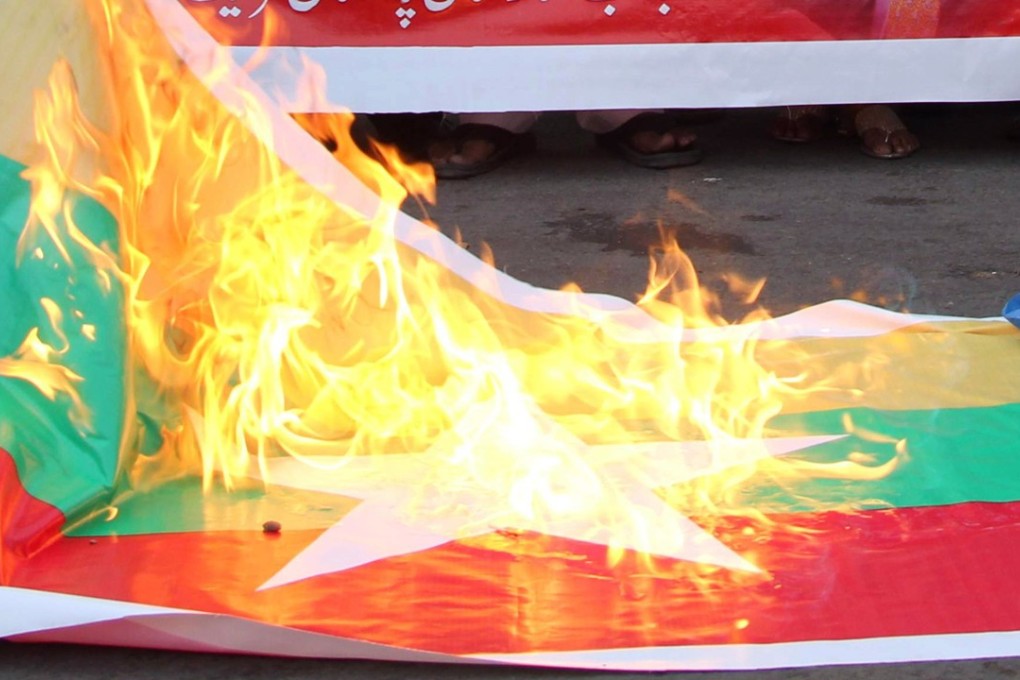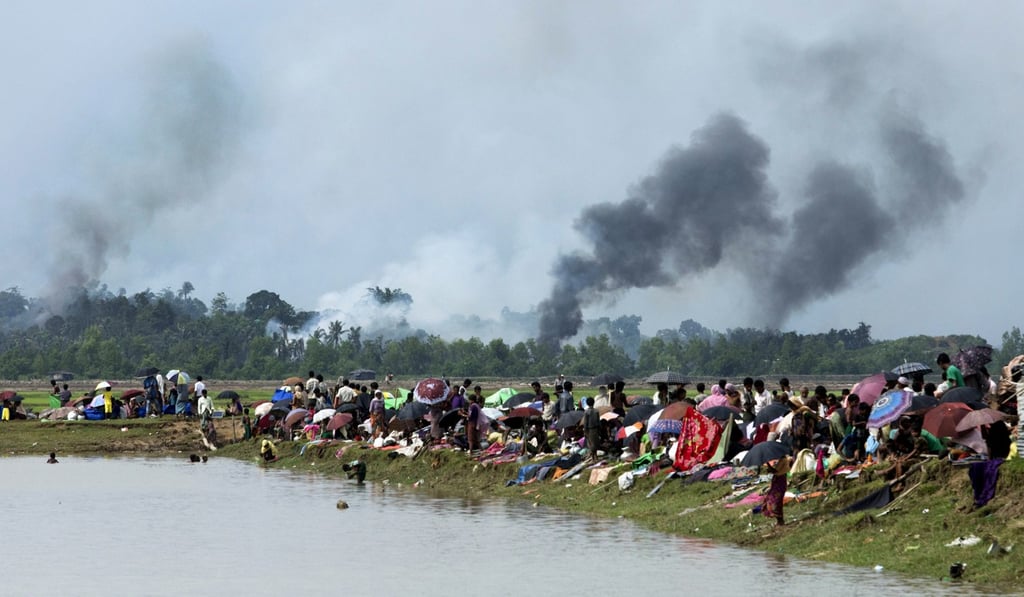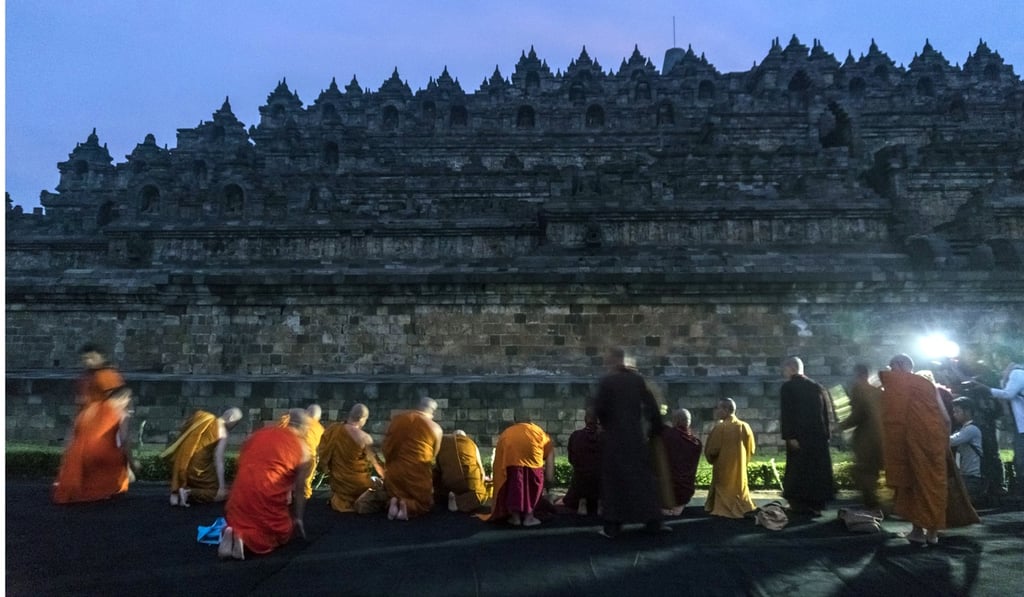Plight of Myanmar’s Rohingya: militant Islam’s next rallying call?
Calls for jihad in defence of the Muslim minority prompt fears of a second front against Islamic State-linked fighters in Southeast Asia, and – for Arab leaders – concerns the issue will re-energise militants and opposition groups alike

Protests condemning Myanmar’s violence against the Rohingya are stirring deep-seated emotions across the Muslim world that could backfire on governments and fuel radicalisation.
Thousands marched this week in Muslim cities across the globe, including Kuala Lumpur, Jakarta, and Grozny demanding an end to what they termed genocide. Glaringly absent from the list were Middle Eastern capitals.
“This is a delicate issue that calls for a quick resolution. The protests have the potential of turning against governments that are not seen to be standing up for the rights of Muslims. It also could fuel radicalisation. The last thing we need is an open confrontation between Muslims and Buddhists,” said one Arab ambassador.
Myanmar has a new insurgency to worry about
The ambassador was echoing a warning issued in an independent report by a group headed by Kofi Annan, the former UN secretary general. The report said Myanmar risked fuelling “extremism” if it did not lift restrictions on the freedom of movement and right to citizenship of its Rohingya minority.


Similarly, Turkish President Recep Tayyip Erdogan, a man known for not mincing his words, accused Myanmar of committing genocide and pledged to deliver 1,000 tonnes of food, medicine and clothing to the country’s afflicted north-western region of Rakhine. Erdogan said he would be taking the Rohingya issue to the United Nations Security Council in consultation with other Muslim nations.
Turkish Foreign Minister Mevlut Cavusoglu, accompanied by Erdogan’s wife and son, is expected to visit the Myanmar-Bangladesh border and has promised that Turkey will also provide ambulances and other equipment.